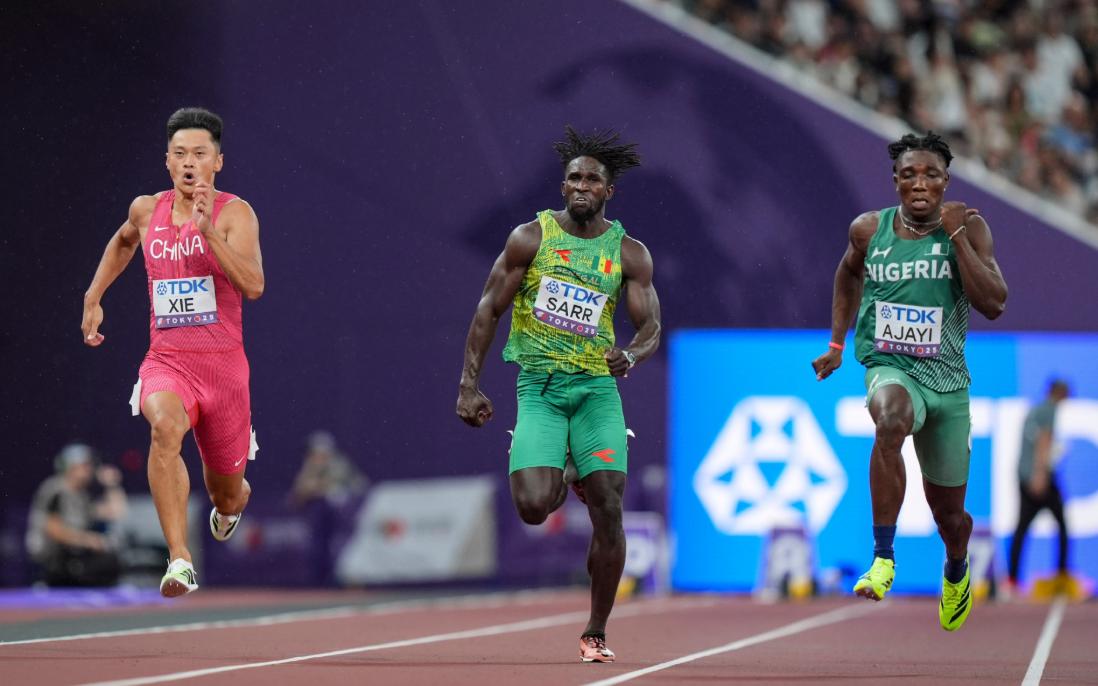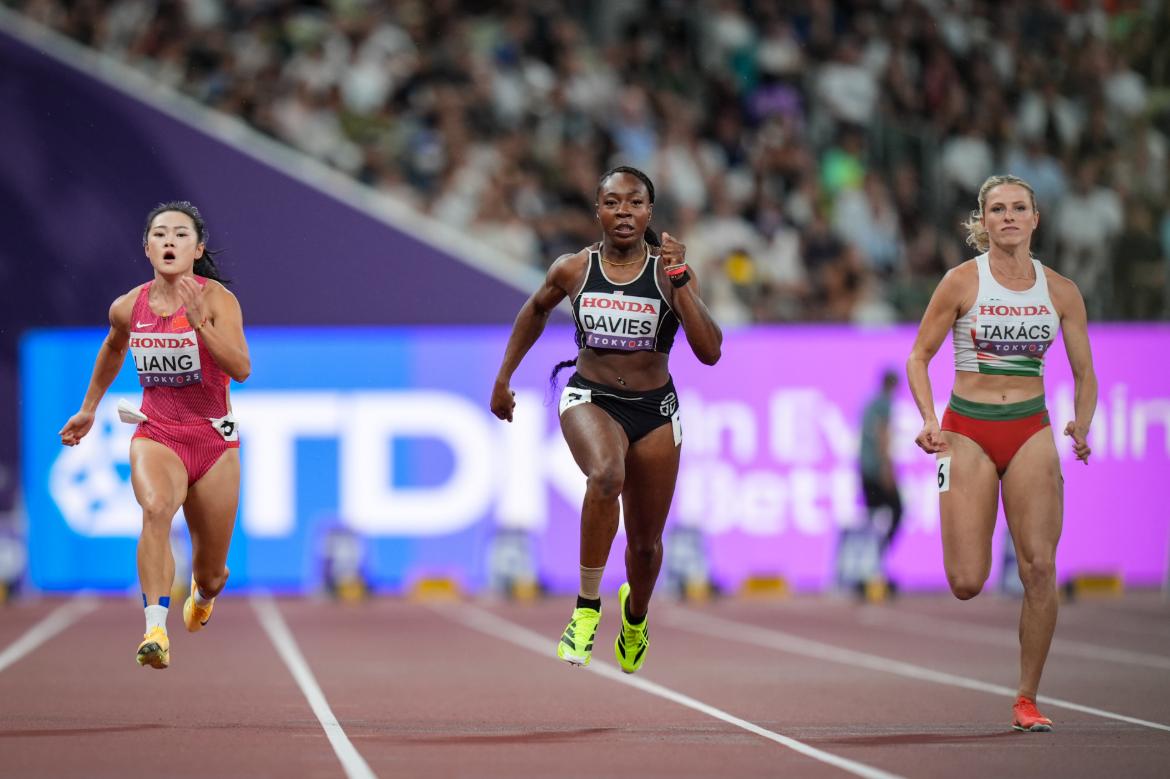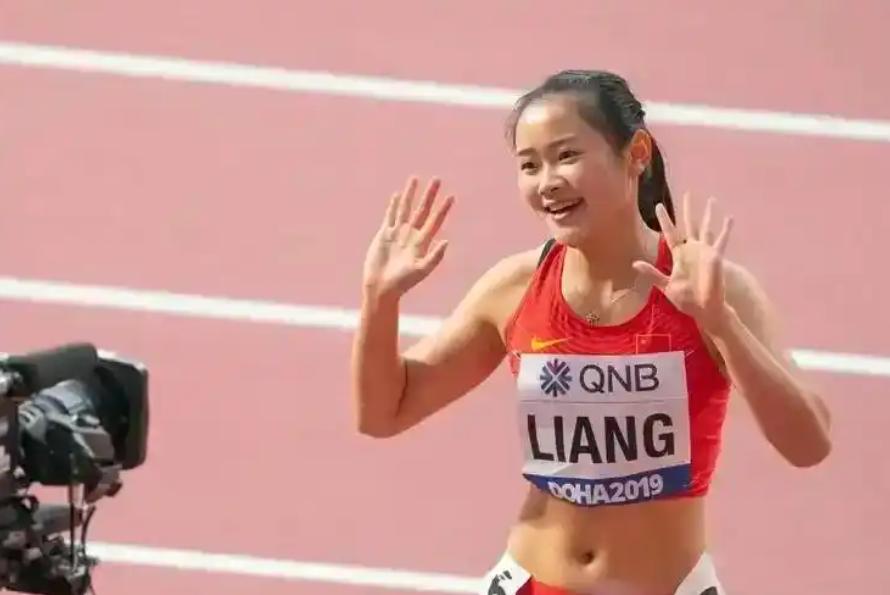The 2025 Tokyo Track and Field Championships opened. The most popular track and field competition is naturally the 100-meter competition. The 100-meter preliminary round for men and women on the first day ended. As a result, all three participating Chinese athletes encountered the first round of the preliminary round. In just a few hours, we said goodbye to the most popular event of the World Championships.

In fact, the man's 100-meter defeat can be predicted, and not many people have any expectations for this project. Xie Zhenye and Deng Xinrui are old and young. After Su Bingtian retired, the men's 100-meter project in China and even Asia need to find new leaders.

In the end, although Xie Zhenye scored his best season in 10 seconds and tied 21 times, he still missed the rematch. Xie Zhenye scored his best season in 10 seconds and missed the rematch. Deng Xinrui ran 10.23 seconds in group 7. Although he performed well in the first half, his rhythm was messy in the second 40 meters and he missed the final.

Compared with the men's event, this women's event has become the focus of attention of most viewers. Liang Xiaojing's strength is still very good, at least she has the strength to reach the finals, and everyone is looking forward to it.
On May 28 this year, Liang Xiaojing won the women's 100m gold medal in the 2025 Asian Track and Field Championships with 11.37 seconds. This is also the second time that Chinese athletes dominate the women's sporting battle in the Asian Championships after 12 years after Wei Yongli in 2013. So Liang Xiaojing now represents the highest level in Asia.

Liang Xiaojing made her debut in the eighth lane of the fifth group. Her departure today is very average and does not reflect her advantages. This made the game change quota very difficult. She ran and performed stably on the way, but this was not her advantage. She finally ranked sixth in the group with 11.29 seconds and missed the final.

11 seconds 29 is actually OK. The problem is this the World Championships preliminaries, and 11.29 seconds is obviously not enough. British player Netta ranked first in the group with a season best result of 10.94 seconds, American player Terry second in the group in 11.06 seconds, American native Liberian player Davis won third in the group in 11.12 seconds, and they directly advanced to the semi-finals.

Alfred, a 100m champion of the Paris Olympics and St. Lucia, ranked first in the preliminaries with 10.93 seconds, Neta second, and American player Jefferson Wooden ranked third in the preliminaries with 10.99 seconds.
All the female players in Asia were eliminated, and no one entered the semi-finals. In terms of men's 100 meters, only Thai player Wensong entered the semi-finals. Asian players almost suffered a team-destroy on the first day, while all three Chinese players were eliminated.

Liang Xiaojing herself was not satisfied with her performance today. She believed that there were two reasons why she failed to enter the semi-finals. First, I got late when I got into the bus, and I didn’t have enough time to warm up. I started to exert too much force and wanted to grab it too much. I almost fell down and my rhythm was messy.

Look at the objective reasons first. Many ignorant netizens think that this is not an excuse. If you lose, you cannot find an objective reason. This is very brainless. If you are late for the college entrance examination and enter the examination room late, it affects your mood and leads to your performance malfunction. Isn’t this a very important reason?
The second is her own subjective reason. As Liang Xiaojing said herself, the starting force is too strong and the rhythm is messy, which makes her advantage in the first 60 meters fail to be effectively used. This is very fatal, and it is still related to the starting.

I hope Liang Xiaojing can calm down and prepare for the subsequent competitions. However, as an experienced athlete, she has been participating in the competition since the 2016 Rio Olympics. She is also an "old" player. It is really not to be affected by objective factors.













